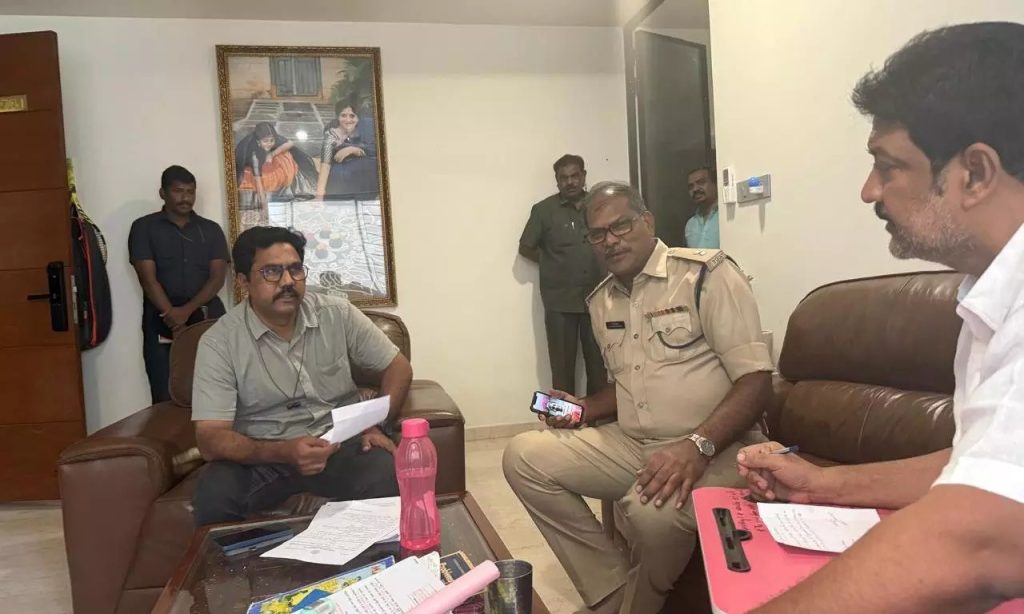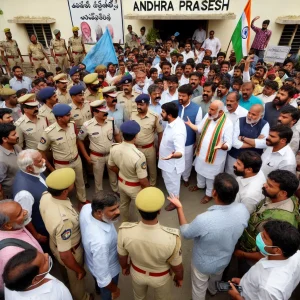
AMARAVATI – The political landscape in Andhra Pradesh has become increasingly fraught following the arrest of former YSR Congress Party (YSRCP) MLA Vallabhaneni Vamsi. The arrest, which took place in Hyderabad, has ignited a wave of accusations and counter-accusations between the ruling Telugu Desam Party (TDP) and the YSRCP, with both parties trading barbs over allegations of misuse of power.
Former Chief Minister and YSRCP President Y.S. Jagan Mohan Reddy has strongly condemned Vamsi’s arrest, claiming it exemplifies the TDP-led coalition’s blatant abuse of power. Taking to social media, he accused the ruling party of employing unlawful tactics to silence political opponents, asserting that the legal institutions in Andhra Pradesh have been compromised due to government interference. He described the enforcement of what he termed the “Red Book Constitution” as a means to undermine democracy in the state.
The case surrounding Vamsi’s arrest stems from an incident involving an attack on a TDP office in Gannavaram during the previous YSRCP regime. A Dalit youth, who testified in court about being pressured by TDP leaders to file a false case, has further complicated matters. Jagan criticized TDP chief Chandrababu Naidu for allegedly attempting to manipulate the investigation and intimidate witnesses, claiming that the police have become tools for political harassment.
Despite the ongoing judicial proceedings, Jagan accused the TDP government of continuing to interfere with the investigation, calling this conduct a serious affront to the judiciary and an attempt to undermine legal processes. He held the government accountable for Vamsi’s safety and condemned what he characterized as a politically motivated arrest.
The situation escalated further with Jagan citing another case involving former Denduluru MLA Kotharu Abbaiya Chowdary, who was reportedly booked under false SC/ST charges. Video evidence showing a TDP MLA verbally abusing Chowdary’s driver circulated widely, yet police chose to file charges against Chowdary instead of addressing the actual offender. This incident has raised questions about bias within law enforcement and accusations of systematic targeting of political opponents.
In addition to these allegations, Jagan criticized Naidu for failing to fulfill numerous promises made during his tenure, including key initiatives aimed at public welfare. He suggested that Naidu’s administration is attempting to divert attention from its shortcomings through politically charged arrests and fabricated cases against opposition leaders.
As tensions mount, Jagan warned that the people of Andhra Pradesh are acutely aware of these injustices and will hold the government accountable for its actions. The unfolding events signal a deepening rift between the ruling party and its opposition, raising questions about governance and accountability in a politically charged environment.
With both sides entrenched in their positions, it remains to be seen how this situation will evolve and what implications it may have for future political dynamics in Andhra Pradesh. The ongoing conflict highlights not only the challenges faced by political leaders but also the broader issues surrounding justice and fairness within the state’s legal system.




